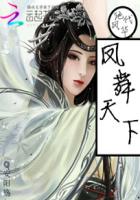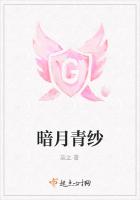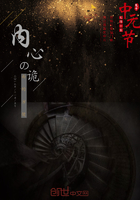And she threw the two links away from her, their gold chain breaking as it struck against the wall.
"But I! I would have given you everything. I would have sold all, worked for you with my hands, I would have begged on the highroads for a smile, for a look, to hear you say 'Thanks!' And you sit there quietly in your arm-chair, as if you had not made me suffer enough already! But for you, and you know it, I might have lived happily. What made you do it? Was it a bet? Yet you loved me--you said so. And but a moment since--Ah! it would have been better to have driven me away. My hands are hot with your kisses, and there is the spot on the carpet where at my knees you swore an eternity of love! You made me believe you; for two years you held me in the most magnificent, the sweetest dream! Eh! Our plans for the journey, do you remember? Oh, your letter! your letter! it tore my heart! And then when I come back to him--to him, rich, happy, free--to implore the help the first stranger would give, a suppliant, and bringing back to him all my tenderness, he repulses me because it would cost him three thousand francs!"
"I haven't got them," replied Rodolphe, with that perfect calm with which resigned rage covers itself as with a shield.
She went out. The walls trembled, the ceiling was crushing her, and she passed back through the long alley, stumbling against the heaps of dead leaves scattered by the wind. At last she reached the ha-ha hedge in front of the gate; she broke her nails against the lock in her haste to open it. Then a hundred steps farther on, breathless, almost falling, she stopped. And now turning round, she once more saw the impassive chateau, with the park, the gardens, the three courts, and all the windows of the facade.
She remained lost in stupor, and having no more consciousness of herself than through the beating of her arteries, that she seemed to hear bursting forth like a deafening music filling all the fields. The earth beneath her feet was more yielding than the sea, and the furrows seemed to her immense brown waves breaking into foam. Everything in her head, of memories, ideas, went off at once like a thousand pieces of fireworks. She saw her father, Lheureux's closet, their room at home, another landscape. Madness was coming upon her; she grew afraid, and managed to recover herself, in a confused way, it is true, for she did not in the, least remember the cause of the terrible condition she was in, that is to say, the question of money. She suffered only in her love, and felt her soul passing from her in this memory; as wounded men, dying, feel their life ebb from their bleeding wounds.
Night was falling, crows were flying about.
Suddenly it seemed to her that fiery spheres were exploding in the air like fulminating balls when they strike, and were whirling, whirling, to melt at last upon the snow between the branches of the trees. In the midst of each of them appeared the face of Rodolphe. They multiplied and drew near her, penetrating, her. It all disappeared; she recognised the lights of the houses that shone through the fog.
Now her situation, like an abyss, rose up before her. She was panting as if her heart would burst. Then in an ecstasy of heroism, that made her almost joyous, she ran down the hill, crossed the cow-plank, the foot-path, the alley, the market, and reached the chemist's shop. She was about to enter, but at the sound of the bell someone might come, and slipping in by the gate, holding her breath, feeling her way along the walls, she went as far as the door of the kitchen, where a candle stuck on the stove was burning. Justin in his shirt-sleeves was carrying out a dish.
"Ah! they are dining; I will wait."
He returned; she tapped at the window. He went out.
"The key! the one for upstairs where he keeps the--"
"What?"
And he looked at her, astonished at the pallor of her face, that stood out white against the black background of the night. She seemed to him extraordinarily beautiful and majestic as a phantom. Without understanding what she wanted, he had the presentiment of something terrible.
But she went on quickly in a love voice; in a sweet, melting voice, "I want it; give it to me."
As the partition wall was thin, they could hear the clatter of the forks on the plates in the dining-room.
She pretended that she wanted to kill the rats that kept her from sleeping.
"I must tell master."
"No, stay!" Then with an indifferent air, "Oh, it's not worth while; I'll tell him presently. Come, light me upstairs."
She entered the corridor into which the laboratory door opened.
Against the wall was a key labelled Capharnaum.
"Justin!" called the druggist impatiently.
"Let us go up."
And he followed her. The key turned in the lock, and she went straight to the third shelf, so well did her memory guide her, seized the blue jar, tore out the cork, plunged in her hand, and withdrawing it full of a white powder, she began eating it.
"Stop!" he cried, rushing at her.
"Hush! someone will come."
He was in despair, was calling out.
"Say nothing, or all the blame will fall on your master."
Then she went home, suddenly calmed, and with something of the serenity of one that had performed a duty.
When Charles, distracted by the news of the distraint, returned home, Emma had just gone out. He cried aloud, wept, fainted, but she did not return. Where could she be? He sent Felicite to Homais, to Monsieur Tuvache, to Lheureux, to the "Lion d'Or," everywhere, and in the intervals of his agony he saw his reputation destroyed, their fortune lost, Berthe's future ruined.
By what?--Not a word! He waited till six in the evening. At last, unable to bear it any longer, and fancying she had gone to Rouen, he set out along the highroad, walked a mile, met no one, again waited, and returned home. She had come back.
"What was the matter? Why? Explain to me."
She sat down at her writing-table and wrote a letter, which she sealed slowly, adding the date and the hour. Then she said in a solemn tone:
"You are to read it to-morrow; till then, I pray you, do not ask me a single question. No, not one!"















